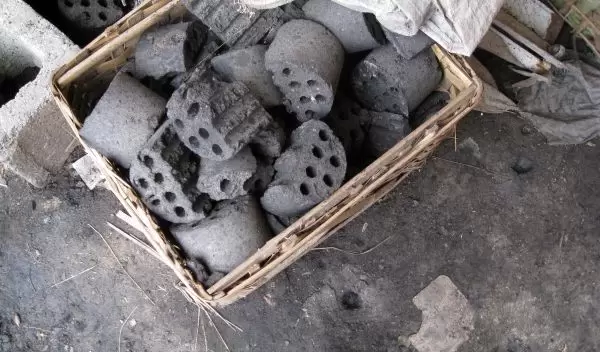
My Research: I Burn Stuff
As a graduate student, explaining what you do for your research isn't always easy. For me, the long explanation is that I look at renewable energy technologies for developing communities, specifically options for cooking and heating in rural China. The larger purpose is to reduce carbon dioxide (CO2) emissions and improve human and planetary health.
Some people think this is cool, while for others, their eyes glaze over pretty quickly. So, while my brother David was visiting me in Beijing this past summer, he came up with a more concise explanation: "You burn stuff."
This is actually almost true. Rather, about 700 million people (that's more than twice the population of the United States) living in rural areas of China, burn stuff. The "stuff" they burn can be straw, rice husks, corn husks, corn cobs, wood or coal. Everything except coal, that is, everything organic, is characterized as biomass, which is considered a renewable resource.
Coal is non-renewable and, when burned, creates high levels of CO2 emissions--bad news. Unfortunately, biomass, while renewable, can also create harmful emissions and particulate matter, if burned in certain ways.
While farmers in the past used biomass to a great extent, the use of coal in rural areas in China is increasing. China is already struggling with significant air pollution, and the increased emissions from rural coal use only exacerbate the problem. However, coal is one of the least expensive energy options, so if we'd like farmers to use biomass in a sustainable way, we need to make sure that it is equal to or less than the price of coal.
Part of my research looks at trying to find the most practical, effective and affordable way for rural families in China to use biomass (for cooking and heating their homes), without having harmful effects on their health or the health of our planet.
I spent last summer in Beijing as a National Science Foundation (NSF) East Asia and Pacific Summer Institute (EAPSI) Fellow, and had the great privilege of conducting research at Tsinghua University for eight weeks. I had planned before coming to Beijing to stay for a full year, so I am continuing my research here and will be in China until just after the start of the 2008 Olympics.
The EAPSI program was a fantastic way to begin my China adventure. I got to meet about thirty other graduate students from all over America, all of whom were studying different topics, and we had a blast exploring Beijing together, practicing Chinese and talking about our extremely varied research interests. I'm continuing to work at Tsinghua, and have loved getting to know the Chinese graduate students in the rural energy research group here. I'm thankful for my advisors, the EAPSI program (which gave a great start to my year in this amazing country) and my brother, who gave me a whole new way to explain what I do!
-- Abigail Watrous, Tsinghua University and University of Colorado at Boulder abby.watrous@gmail.com
This Behind the Scenes article was provided to LiveScience in partnership with the National Science Foundation.


